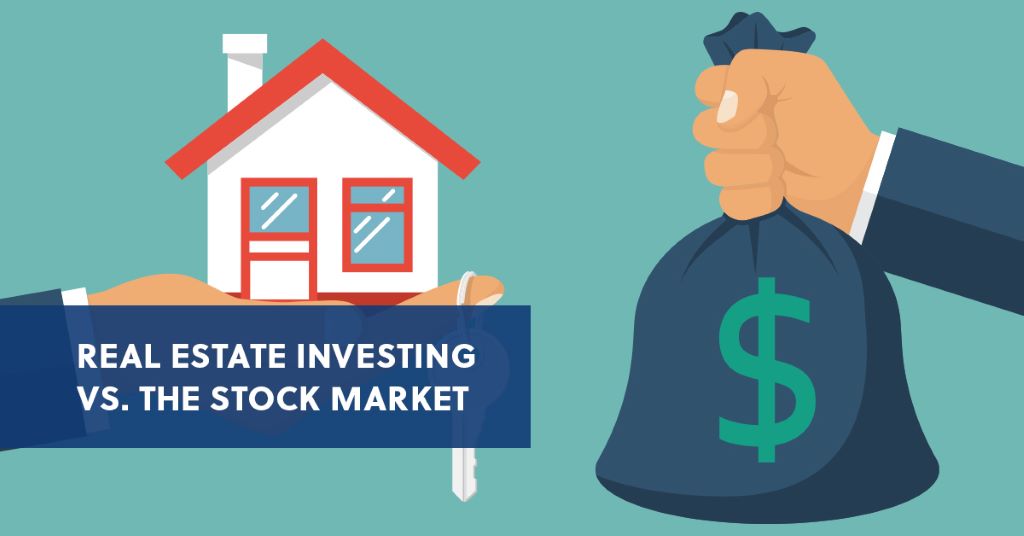
When it comes to growing wealth and securing your financial future, two popular options come to mind: real estate investing and stock market investments. Both avenues have their merits, but the age-old debate persists: does real estate investing beat stock market returns? In this article, we’ll dive deep into both these investment options, comparing their advantages, disadvantages, and potential returns. By the end, you’ll have a clearer perspective on which path may align better with your financial goals.
The Battle of Wealth Building
Real estate investing involves purchasing physical properties such as houses, apartments, or commercial spaces, with the expectation that their value will appreciate over time. Stocks, on the other hand, represent ownership in a company and can be bought and sold on stock exchanges. If you are interested in real estate, you might be wondering what is a tie in agreement in real estate. Both stocks and real estate offer opportunities for wealth accumulation, but the strategies and risks differ significantly.
Real Estate Investing: The Pros and Cons
Pros of Real Estate Investing
- Tangible Assets: Real estate investments provide tangible assets that you can see and touch. This can offer a sense of security and stability.
- Rental Income: Owning rental properties can generate a steady stream of passive income, making it an attractive option for long-term investors.
- Potential for Appreciation: Historically, real estate values have tended to appreciate over time, although this can vary by location.
Cons of Real Estate Investing
- High Initial Costs: Purchasing real estate often requires a substantial upfront investment, including down payments, closing costs, and ongoing maintenance expenses.
- Illiquidity: Real estate investments can be less liquid than stocks, making it challenging to access your money quickly.
- Market Dependent: Real estate values are highly dependent on local market conditions, which can be unpredictable.
Stock Market Investments: The Pros and Cons
Pros of Stock Market Investments
- Liquidity: Stocks are highly liquid, allowing you to buy or sell them quickly when needed.
- Diversification: Investing in a broad range of stocks can provide diversification, spreading risk across different sectors.
- Growth Potential: Historically, the stock market has shown significant growth over the long term, potentially outpacing inflation.
Cons of Stock Market Investments
- Volatility: The stock market can be highly volatile, subject to fluctuations that may lead to temporary losses.
- Lack of Control: When you invest in stocks, you’re essentially trusting the management of the companies you invest in.
- Emotional Factors: Market sentiment, fear, and greed can influence stock prices, leading to irrational decisions.
Real Estate vs. Stock Market: The Returns
Analyzing Historical Performance
Over the years, both real estate and the stock market have demonstrated their ability to generate wealth. However, it’s crucial to understand that the returns can vary widely based on various factors, including location, timing, and individual investment strategies.
Case Study: Real Estate Returns
Let’s consider a scenario where an individual purchases a residential property in a desirable neighborhood. Over the course of a decade, the property’s value appreciates significantly, and they also earn a steady rental income. This combination of appreciation and rental income can lead to substantial returns.
Case Study: Stock Market Returns
In the stock market, returns are tied to the performance of the companies you invest in. By diversifying your stock portfolio and holding investments for the long term, you can benefit from compounding growth and potentially achieve impressive returns.
In the end, whether real estate investing beats stock market returns depends on your individual circumstances, goals, and risk tolerance. Real estate offers tangible assets and steady income but requires substantial upfront capital. The stock market provides liquidity, growth potential, and diversification but comes with volatility and market uncertainties.
Ultimately, a well-balanced investment portfolio may include a mix of both real estate and stocks, leveraging the strengths of each to achieve your financial objectives. Remember that it’s essential to conduct thorough research, consider your financial situation, and consult with a financial advisor before making investment decisions.
FAQs
Is real estate a safer investment than stocks?
Both real estate and stocks come with their own set of risks. Real estate can provide stability, but it’s not without its own uncertainties.
Can I invest in both real estate and stocks simultaneously?
Yes, many investors choose to diversify their portfolios by including both real estate and stocks to spread risk.
Which one typically offers higher returns in the long run?
Historically, the stock market has shown higher average returns over extended periods, but past performance is not indicative of future results.
What are the tax implications of real estate investments vs. stock investments?
Taxation varies based on location and individual circumstances. Real estate may offer tax advantages like depreciation deductions, while stocks may have different tax treatment.
How can I mitigate the risks associated with both investments?
To mitigate risks, conduct thorough research, diversify your investments, and consider seeking advice from financial experts who specialize in real estate and stock investments.

